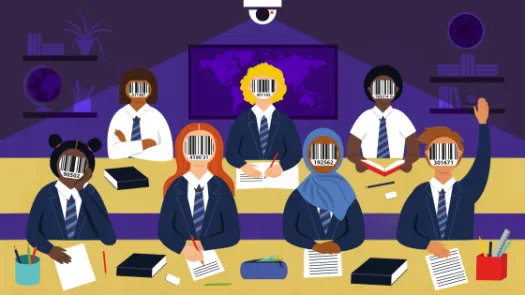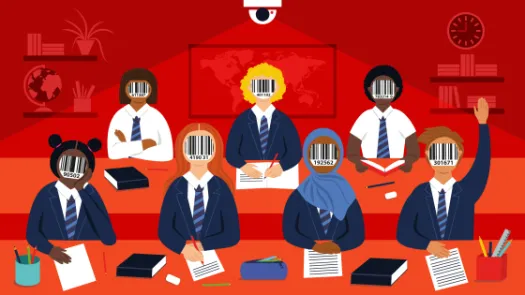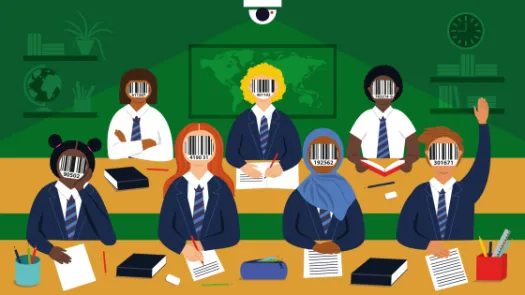Securitising Education
How EdTech is turning schools into mass surveillance spaces.
Educational spaces are increasingly being subjected to intrusive monitoring, and the education technologies (EdTech) being deployed is being used as a form of surveillance that undermines students’ privacy and human rights.
This intrusion into students’ privacy is mainly due to the inescapable presence of these technologies, which facilitate the creation of detailed records documenting students’ movements, interactions, and daily schedules. While those promoting EdTech may claim that these tools enhance safety, efficiency, and content delivery, the implications are far-reaching. They can expose intimate aspects of a student’s life, including their sexual orientation, health status, and religious preferences.
In essence, they transform educational institutions into environments where students are under constant surveillance, much like individuals in “high security” settings, such as prisons. Their every move is meticulously recorded and categorized, producing a chilling effect on their natural reactions and behaviour.
The alarm is being raised. Among others, the UN Special Rapporteur on the Right to Education calling out the adverse impacts of state surveillance facilitated by EdTech, including the intrusive nature of technologies, data collection and role of commercial entities.
In a nutshell, the securitisation of educational spaces undermines students’ learning, growth, and ability to exercise their basic human rights.
What is EdTech? Find out more on our Learn page
What is PI doing?
PI has been closely monitoring this trend, especially through the increasing use of EdTech.
Our research exposes significant gaps in compliance with human rights standards in the deployment of these technologies in educational settings.
We advocate at both national and international levels, urging authorities to address these concerns and take action to protect human rights.



